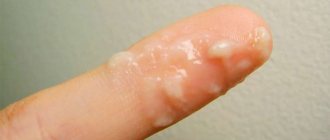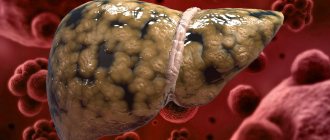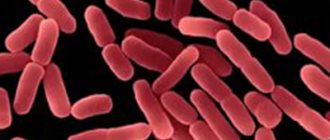Features of the structure of the urethra in women
The urethra in women is shorter and thinner than in men. The inside walls are covered with mucous membrane, followed by a layer of muscle tissue and connective fibers. The length of the urethra in women is from three to five centimeters, and the diameter is no more than one and a half centimeters.
The function of the organ in women is to excrete urine, and in men it also excretes seminal fluid.
Microflora is becoming a common cause of discomfort in the urethra in women. The number of pathological microorganisms depends on the age of the patient and the state of her immunity. In a healthy adult woman, the vast majority of microorganisms are lactobacilli. Saprophytic staphylococci and epidermal staphylococci on the mucous membrane are also acceptable. The presence of up to 10% of bifidobacteria is also considered normal for women from thirty to sixty years old.
Infectious and inflammatory diseases
More often, a burning sensation at the end of urination in women is a consequence of an infectious disease. Pathogenic microflora entering the body spreads to nearby organs, which causes the development of complications. Among the most common diagnoses are:
- Cystitis. It affects more than half of the entire female population of the earth. It is accompanied by inflammation concentrated in the bladder. The danger of the disease is its rapid chronicity and tendency to regular relapses. With cystitis, women experience a painful urge to urinate and a burning sensation in the urethral area. The feeling of fullness of the bladder may remain even after it is completely empty.
- Urethritis. The disease is associated with the development of inflammation in the urethra. The urine causes a burning sensation and a strong burning sensation in the vagina. Pain syndrome develops, yellowish or greenish discharge appears.
- Vaginal candidiasis. It occurs against the background of active reproduction of fungi of the genus Candida in the vagina. They are normally present in the body of every woman. Fungi affect the mucous membranes of the genitals. The result is persistent vaginal itching and frequent urination.
- Pyelonephritis. This disease develops in cases where the infection reaches the kidneys. Inflammation appears in the tissues. The renal pelvis and calyces are affected. Frequent urination is associated with pain and burning, body temperature rises, and bouts of vomiting occur.
- Colpitis. Its appearance is associated with the development of inflammation on the surface of the vagina. As a result, the integrity of the mucous membrane is compromised. Urine entering the microcracks causes a strong burning and pinching sensation, and a constant itching sensation is tormented.
Without proper treatment, such diseases can cause kidney failure, incontinence and other serious life-threatening complications. Therefore, as soon as the woman noticed that I was urinating excessively and discomfort appeared, I needed to undergo an examination at the clinic.
Methods for examining the condition of the urethral mucosa
To accurately diagnose the causes of discomfort in the urethra, women most often take a smear. Such a study is carried out in the direction of a nephrologist, gynecologist or urologist. The purpose of taking a smear is to determine the presence of infection, type of pathogens, pathogenic microflora, erosions or ulcers.
Indications for taking a smear from the urethra are the following conditions:
- Pain and burning when urinating.
- Unpleasant sensations in the urethral area.
- Suspicion of an inflammatory process.
- Suspicion of the presence of sexually transmitted diseases.
A smear can be taken directly in the office of a gynecologist or urologist if it is a preventive examination. This procedure is quite painful if the urethral mucosa is irritated.
Before taking a smear to determine the cause of discomfort in the urethra in women, you need to follow some rules:
- Seven days before the test, do not take antibiotics.
- Seven to ten days before taking a smear, do not drink alcoholic beverages.
- Do not have sexual intercourse for twelve hours.
- An hour or two before the test, do not urinate.
To accurately diagnose the cause of the problem, the following tests are performed:
- Urine according to Nechiporenko.
- Bacteriological culture.
- Blood chemistry.
- Blood test for glucose levels.
- Ultrasound of the pelvis.
Prevention measures
To avoid diseases that lead to painful urination, you must adhere to the following rules:
- maintain personal hygiene and do not forget about personal hygiene products,
- avoid hypothermia and contact with possible allergens,
- wear comfortable cotton underwear,
- give up promiscuity,
- Visit a gynecologist at least once a year and consult a doctor at the slightest suspicion of a disease.
Simple rules for preventing urogenital infections will help avoid many women's troubles.
Causes of discomfort in the urethra in women
It is difficult to determine the exact cause on your own. Most often, this purpose requires an examination by a nephrologist, gynecologist or urologist and study of test results. The most common causes of discomfort in the urethra in women:
- Allergic reactions to certain types of medications, food products, and underwear made from synthetic materials.
- Various injuries.
- Cystitis.
- Urogenital infections.
- Urethritis and urogenital chlamydia.
- Gonorrhea and trichomoniasis.
- Inflammation of the cervix.
- Increased emotional and physical stress.
- Infectious diseases of the urinary system.
After a competent diagnosis, we can talk about prescribing medication.
Treatment
Successful therapy for any disease lies in an integrated approach. For this purpose, both drug treatment methods and physiotherapy, lifestyle correction, diet, etc. are used.
Drug treatments
The selection of the most effective drugs and the preparation of an adequate treatment regimen is carried out exclusively by a doctor. Depending on the pathology, this may be a general practitioner, urologist, gynecologist or surgeon. Self-medication at home is fraught with aggravation of the clinical picture, chronicity of the disease and the development of complications.
Drug correction of painful urination includes the following medications:
- antibacterial and antifungal drugs with a wide spectrum of action,
- uroseptics,
- tablets that help dissolve stones,
- analgesic and anti-inflammatory suppositories,
- diuretics,
- probiotics,
- sedative pharmaceuticals,
- Dietary supplements.
For successful treatment, complete completion of the therapeutic course prescribed by a specialist is necessary, so you need to take medications even if the unpleasant symptoms have ceased to bother you.
Treatment with folk remedies
In the fight against urological problems, proven folk remedies have proven themselves well. Decoctions of chamomile and calendula will help reduce itching and inflammation; decoctions of cherry stems, tinctures of marshmallow root and lilac flowers will help reduce pain. For renal colic, it is recommended to take warm baths with medicinal herbs. Horsetail herb has a diuretic effect. Despite the fact that folk recipes are intended for home treatment, before using this or that remedy, it is still necessary to consult with your doctor.
Urogenital infections
The most common infections that cause discomfort in the urethra in women:
- Chlamydia is an infectious disease that is sexually transmitted. It is characterized by a burning sensation when urinating and discomfort in the urethra throughout the day.
- Symptoms of candidiasis - in addition to burning and pain in the urethra during urination, the presence of cheesy discharge with an unpleasant odor from the vagina is also characteristic.
- Genital herpes leads not only to a burning sensation in the urethra in women, but also to the appearance of rough or smooth lumps that are painful when pressed.
- Bacterial vaginosis is a type of urogenital infection that can develop only in one case - if the microflora of the vaginal mucosa does not have a sufficient number of lactobacilli.
Symptoms of urogenital infections in women:
- Burning, pain when urinating.
- Pain in the pelvic area.
- Severe swelling of the labia.
- Inflammation of the cervical canal, fallopian tubes.
- Inflammation of the walls of the vagina and the large gland of its vestibule.
Diagnostics
The peculiarity of urogenital diseases lies in the fact that with different pathological processes, patients may present identical symptoms. That is why it is so important to carry out differential diagnosis, take into account the characteristics of the organism and the clinical case, and genetic predisposition.
If discomfort occurs, you should undergo a thorough medical examination. Source: prourinu.ru
You can determine why there is itching, burning or stinging in the urethra after urination in women through the following measures:
- Examination using medical instruments and devices;
- Study of the composition of biological fluids (blood and urine);
- Vaginal smear collection and microscopic diagnosis;
- Conducting ultrasound screening of the pelvic organs and kidneys;
- Blood test to determine the allergic agent.
Only through an integrated approach can one really establish the main cause of discomfort in the urethra. It often happens that it is not difficult to get rid of discomfort; the main thing is to clearly understand what will have to be treated and according to what scheme.
Urogenital chlamydia
Chlamydia of the urogenital type manifests itself as an inflammatory disease of the genitourinary organs, prostate gland, and bladder. It can only be contracted through sexual intercourse. The infection can occur in both men and women. Both a man and a woman can become a carrier.
Symptoms of urogenital chlamydia in women are as follows:
- Purulent vaginal discharge.
- Curdled, thick mucus with an unpleasant odor from the vagina.
- Slight increase in temperature.
- Weakness and asthenia.
- In parallel, urethritis, cystitis, and bacterial vaginosis develop.
Diagnosis of urogenital chlamydia is quite complex and consists of several research methods:
- Cytological (examination of biological material under a microscope to determine the type of pathogen. This method is not always effective.
- Immunofluorescence, in which smears taken from the urethra are stained with anti-chlamydial antibodies - a fluorescent component is introduced and the glow of microorganisms is detected under a special microscope.
- The serological method identifies pathological microorganisms by the reaction of immunoglobulins.
- Molecular biological - conducting a polymerase chain reaction to search for deoxyribonucleic acid in a smear from the urethra and cervical canal.
Pain with blood
Approximately 80% of cases of painful urination in women are accompanied by hematuria - the appearance of blood in the urine. This symptom is characteristic of both inflammatory diseases of the urinary tract (cystitis, urethritis) and gynecological pathologies. For example, a disease such as endometriosis is characterized by the proliferation of cells in the inner layer of the uterus to other organs. With endometriosis of the bladder, a woman feels a feeling of heaviness and dull pain, which coincides with the bleeding period of the monthly cycle. At the same time, hematuria and discomfort when urinating may appear.
Suppuration of an ovarian cyst is one of the diseases in which an attached infection spreads throughout the body through the blood or lymph flow. This is an acute process that requires emergency surgical care, but it may be preceded by missed periods, periodic pain in the lower abdomen extending to the navel, and bloody or brown discharge from the vagina. If reactive colitis develops, the woman will complain that there is pain or pulling in the left side. Separately, it should be noted the appearance of blood and minor pain after defloration. The first sex can cause a girl slight discomfort, which goes away after about a day.
Urethritis in women: symptoms and signs
The most common reasons for the development of this disease are:
- The presence of latent and overt sexually transmitted infections.
- Damage to the mucous epithelium of the genitals.
- Violation of sterility during medical procedures (for example, inserting a catheter into the urethra).
- Local or general hypothermia.
- Chronic inflammatory diseases of the kidneys and bladder.
The causes of chronic urethritis are varied. Based on them, urology divides the disease into two types: infectious and non-infectious urethritis. Treatment for each of these types has important differences.
The main symptoms of urethritis in women (if the disease is infectious) are most often accompanied by a slight increase in temperature. The patient also develops weakness, asthenia, severe and sharp pain in the urethra when urinating. In this case, it is necessary to undergo examination by a urologist and gynecologist to accurately determine the type of infectious agent. After this, a course of effective antibiotics will be prescribed.
With urethritis of a nonspecific nature, the disease is milder and does not cause pronounced discomfort. This type of urethritis is characterized by the release of mucus with an unpleasant odor.
Treatment for urinary problems
In order to completely eliminate discomfort when urinating, it is necessary, first of all, to get ahead of the immediate cause.
For example, with urolithiasis, you need to drink plenty of fluids.
If the reasons are neurological, then herbal sedatives - phytosed - are mainly prescribed.
If the cause is inflammatory processes, then antibiotics are prescribed - norfloxacin.
Plus, to all these prescriptions, diuretics are always added.
How to relieve pain before visiting a doctor
In order to relieve your symptoms a little before seeing a doctor, you need to:
- Drink plenty of fluids: warm, not sweet tea, herbal decoction, fruit juice. Decoctions can be made from rosehip or bearberry. Carbonated water and mineral water are excluded.
- Take 2 tablets of No-shpa or spasmalgon.
- Completely avoid eating salty, spicy, fried, sweet and alcoholic foods.
Read: 4,400
12 ratings, average: 4.92 out of 5
Gonorrhea and trichomoniasis
Among sexually transmitted diseases, the most common causes of discomfort in the urethra in women are gonorrhea and trichomoniasis. The manifestations of these ailments are very similar. However, treatment will vary dramatically.
Trichomoniasis is caused by urogenital Trichomonas. This is a single-celled microbe that multiplies very quickly in the human body, gaining a foothold in the organs of the urinary system. After a few days, urogenital Trichomonas multiplies to such an amount that can provoke an inflammatory process.
In relatively rare cases, trichomoniasis can be transmitted through household means, for example, through a toilet seat or a shared towel. In conditions of high humidity and heat, Trichomonas can continue its life activity outside the human body for some time.
A feeling of discomfort in the urethra is also characteristic of gonorrhea. Gonococcus is the causative agent of this disease. After entering the body, it does not manifest itself in any way for two weeks, and then becomes the cause of the inflammatory process.
You can become infected with gonorrhea in the following ways:
- Sexual intercourse.
- By everyday means (probability is low).
- Transmission from mother to baby (through the birth canal).
Prevention and treatment measures
Treatment does not seem to be a complicated process if the disease has not been started and is detected in time. In this case, it is enough to follow the following instructions from the doctor, which in turn are purely individual. But there are still some common features of treatment:
- taking antibiotics;
- anti-inflammatory drugs;
- vitamins that restore the body's immune system;
- antibacterial drugs;
- physiotherapy.
All medications and drugs are dispensed strictly according to a doctor’s prescription
These techniques will cure not only minor burning sensations, but also more serious forms of abnormalities. Before or after suffering from an illness, it is recommended to follow some basic rules of prevention that can stop the burning appearance of bacteria. It is important not to undergo an annual examination, but to monitor and take care of yourself:
- Avoid prolonged exposure to the cold, otherwise you may get hypothermia, which primarily affects the organs of the urinary system.
- Keep your intimate area clean. This is exactly the area that should be in the best conditions.
- Eat right, if necessary, follow simple diets and arrange fasting days. All this significantly affects the condition of the genital organs.
- Protect yourself and try to avoid promiscuity, as the likelihood of acquiring a sexually transmitted disease is very high.
- If you feel that you need a vacation, then organize it, take a vacation. The health of the entire body depends, first of all, on yourself.
Treating a burning sensation in the urethra is not so difficult if you follow preventive measures. You should never be afraid or embarrassed by doctors, because their job is to help you in any situation, no matter how serious it is. Always take care of yourself and your health.
Inflammation of the cervix
This is the most common cause among genital diseases, which provokes a burning sensation in the urethra in women.
Causes of cervical inflammation:
- Hypothermia.
- Sitting for a long time on a cold surface.
- Low general and local immunity.
- Inflammatory process in neighboring organs.
If you start therapy at the first stage of the disease, the inflammation goes away quite easily. Antibiotic or anti-inflammatory drugs, as well as immunomodulators, may be prescribed for treatment.
Non-infectious causes
The group of diseases includes inflammatory processes of the reproductive and excretory system, including the bladder and urethra.
Burning after urination in women and men can be caused by a number of non-infectious diseases, as well as mechanical or chemical effects.
The disease is characterized by the appearance of calculi (stones) in the kidneys, ureters, and bladder. The condition is manifested by frequent visits to the toilet, pain is felt at the site of stone formation (they can spread to neighboring organs), and there are often traces of blood in the urine. Symptoms depend on the size of the stones and their location.
Small formations cause pain, sharp pain radiates to the lower back, lower abdomen, and groin. Large stones are manifested by a dull, nagging pain in the lumbar region, and the presence of blood in the urine. The constant urge to urinate, which is accompanied by a feeling of incomplete emptying of the bladder, is a concern.
The reasons for the appearance of stones are metabolic disorders, which cause the formation of salt crystals that turn into stones. A complication of kidney stones can be pyelonephritis (inflammation of the kidney).
Hygienic products irritate the epithelium, which causes discomfort when urinating. For example, hard toilet paper is used.
Women often experience injuries during the birth of a child, which causes stinging when urinating, pain, and burning.
Wearing improperly selected tight underwear made of synthetic materials can cause itching and pain in the labia minora when urinating.
During intimate relationships, microcracks can form, which sting and burn the vaginal mucosa and labia.
The use of unsuitable pads, their untimely replacement, and incorrect insertion of tampons affect the condition of the external genital organs, causing unpleasant symptoms.
Damage to the organs of the genitourinary system during manipulations, such as the installation of a urinary catheter during childbirth or surgery, causes discomfort when urinating.
The use of cosmetics to care for intimate areas disrupts the natural microflora of the vagina, which leads to discomfort, burning, and itching.
With improper care of the genitals and frequent washing with soap, the natural microflora of the mucous membranes in the intimate area is washed away. They become sensitive, dry, and when urinating, irritation occurs, when touching the genitals, pain is felt, discomfort appears in the vagina, and frequent urination begins.
Eating disorders lead to an imbalance of the natural microflora of the vagina. Some foods increase the acidity of urine, which also results in unpleasant symptoms after urination and odorless discharge.
Some medications and improper use of medications change the composition of urine, causing patients to experience itching, burning and pain. This also includes substances that cause allergic reactions, both local and general.
The urethrogenital canal can become infected with fungi and bacteria, but most often it is a bacterial infection.
Bacterial urethritis can be caused by staphylococcus, E. coli, gonococcus and other pathogens
During the course of the disease, the patient experiences:
- burning after urination (may be present during the process itself);
- discharge from the urethra (vitreous, purulent, threadlike);
- “gluing” of the external opening of the urethra with mucous discharge.
Treatment is carried out by applying local ointments, washing the urethra with antibacterial solutions, and taking broad-spectrum antibiotics.
Physical trauma to the urethra also leads to urethritis and burning in the urethra. This usually occurs due to injury to the pubic area in women and the penis in men.
If you experience any discomfort when urinating after an injury, you should consult a doctor to identify possible internal hematomas, ruptures and bleeding.
Increased emotional and physical stress
Women should not underestimate the impact of chronic fatigue on their health. This can also be said about being under constant stress. Inflammatory diseases of the genitourinary system often have psychosomatic causes.
Pyelonephritis and glomerulonephritis, which often provoke the development of urethritis and cystitis, occur with low immunity and being in stressful situations. For a weakened person, the slightest draft is enough to get sick.
There is no need to test the strength of your physical and psychological condition. This often has serious health consequences. You should eat well, sleep at least eight hours a day, and not bring yourself to a state of stress by communicating with unpleasant people.
Prostate diseases
The causes of burning after urination in women are not always associated with the development of the disease. This symptom can be caused by the following negative factors:
- Overheating or hypothermia of the body. Clothing that is not appropriate for the weather, prolonged exposure to the sun or frost provoke disruptions in the functioning of all body systems. The result of this is a change in the microflora of the vagina, a burning sensation appears.
- Using toilet paper that is too rough. It scratches the delicate mucous surfaces of the vagina, which leads to the appearance of microcracks on it. The urine that gets into them irritates the tissues, which causes discomfort.
- Use of aggressive intimate hygiene products. Soaps and gels containing large amounts of dyes and fragrances provoke the development of allergic reactions. In addition, under their influence, the mucous surface of the vagina dries out, which provokes microdamage.
- Excessive hygiene. Too frequent washing and douching provoke the death of the beneficial microflora of the vagina. As a result, conditions are created for the active proliferation of pathogenic bacteria that provoke a burning sensation after urination in women.
- Hard sex. Rough movements of the partner lead to damage to the mucous surfaces of the genitals, which causes subsequent burning.
- Long-term use of certain medications. This mainly applies to antibiotics. They easily change the vaginal microflora.
- Unbalanced diet. The presence in the diet of excessive portions of sweets, fatty and fried foods, processed foods and fast food leads to changes in the vaginal microflora, and as a result, discomfort.
- Natural change in hormone balance. Related to this is the fact that pain and burning during urination often plague women who have entered the menopausal phase.
Frequent stress, overexertion, and physical activity can also provoke discomfort. It is enough to eliminate the negative impact and your health will return to normal.
Burning during urination often occurs in women wearing synthetic panties. They help create a greenhouse effect around the genitals, which has a beneficial effect on the growth of pathogenic microflora.
This disease affects men aged 25 to 55 years. The prostate becomes inflamed and swollen. This reaction occurs due to the presence of infections. Among them, gonococcus, trichomonas, chlamydia, and Candida fungi are more common.
A characteristic feature of the disease is pain when urinating, frequent urge. Discomfort extends to the scrotal cavity and groin areas. A mass of nerves radiate from the prostate. Painful impulses pass through them, causing trouble for men who suffer from prostatitis. At the same time, many representatives of the stronger half complain that they sting when urinating.
Infectious diseases of the urinary system
Discomfort in the urethra in women often occurs in the presence of infectious diseases of the urinary system. These are the kidneys, ureters, adrenal glands, and bladder.
With pyelonephritis, severe pain and burning is felt when urinating, the temperature rises to forty degrees, the patient experiences weakness and an asthenic state. Pyelonephritis can occur chronically or acutely. In both cases, treatment is necessary based on the symptoms.
Glomerulonephritis is similar in symptoms to pyelonephritis. Without special studies, it is difficult to distinguish these diseases. Statistics show that women more often suffer from pyelonephritis, and men - from glomerulonephritis. This fact does not exclude the possibility that pyelonephritis can be diagnosed in representatives of the stronger sex.
Cystitis is more often diagnosed in women. This is an inflammation of the walls of the bladder, which is characterized by pain and pain in the urethra both with and without urination. In the early stages, homeopathic medicines and herbal infusions can help, but in the later stages, antibacterial therapy cannot be avoided.
Main reasons
Any discomfort during the process of urination, be it pain, pain or burning, should be a reason to seek the advice of a doctor (urologist, gynecologist or andrologist).
Read more about the causes of burning when urinating in this article.
A symptom such as burning after urination may indicate:
- cystitis;
- pyelonephritis;
- passage of sand or kidney stones through the urethra;
- genital candidiasis;
- infectious or physical damage to the urethra;
- some sexually transmitted diseases;
- local allergic reactions;
- vaginitis (in women);
- prostatitis or prostate adenoma (in men).
The list of causes is quite extensive, but each of the diseases, in addition to burning after urination, also has other more specific symptoms
The female genitourinary system has a special structure, the urethra is located close to the anus. Therefore, pathogens easily reach intimate areas; more often than not, women experience a burning sensation after urination.
Often, painful sensations in the lower abdomen are explained by infectious diseases of the urinary and reproductive systems. Pain during urination and frequent urges may be a consequence of repeated changes of sexual partners or mental disorders.
Itching during urination in women and men mainly appears for 2 main reasons: infectious and non-infectious.
Treatment of urethritis symptoms in women
Therapy and prevention are impossible at home, as regular examination by a specialist and monitoring of blood and urine test results are required. To get rid of the disease forever, you need to undergo a course of treatment.
Patients often stop therapy as soon as the symptoms of urethritis disappear. However, this is a grave mistake. You can stop therapy only after you are sure that the inflammation (or infection) has completely left the body.
Bacterial urethritis is treated with antibiotics and fluoroquinolone drugs. Locally prescribed baths with infusions of chamomile, calendula, and yarrow. These herbs help relieve itching and burning.
Trichomonas urethritis in women is eliminated by a venereologist. Treatment usually takes several months until complete recovery. Antibiotics, anti-inflammatory and vitamin preparations are used. After the course, you need to take immunomodulators to increase the overall tone of the immune system.
Causes of pain when urinating in women
There are several reasons that influence the appearance of pain and discomfort when urinating. The most common among them are the following:
Cystitis
Cyctitis is an inflammatory process affecting the walls of the bladder.
Under normal conditions, urine is sterile. If a woman’s body functions normally, the immune system suppresses the growth and development of dangerous flora. However, with impaired immunity, rare emptying of the bladder, hypothermia, and stagnation of blood in the pelvic organs, favorable conditions can be created for infection and the onset of the inflammatory process. The infection can enter the bladder in several ways: through the kidneys (descending infection), from the genital tract and intestines through the urethra (ascending infection), through the lymph (lymphogenous route) and blood (hematogenous infection). One of the main signs of cystitis is a frequent urge to urinate, small portions of urine, and a feeling of fullness even after emptying the bladder. During and after urination, women experience pain in the lower abdomen - strong, sharp, cutting, aching or sharp. In addition to dysuria, other symptoms of cystitis are noted: general weakness, increased body temperature, chills, lethargy, and malaise. Expert opinion
There is such a phenomenon as postcoital cystitis: after the end of sexual intercourse, a woman feels the need to empty the bladder, during which pain and discomfort appear. If you encounter a similar problem, contact a gynecologist or urologist.
Obstetrician-gynecologist of the highest category Oksana Anatolyevna Gartleb
Sexual infections (chlamydia, trichomoniasis, gonorrhea, candidiasis, etc.).
These can be not only sexually transmitted diseases, but also infectious processes caused by the pathological growth of opportunistic and pathogenic microflora of the vagina. In such cases, additional symptoms are added to the complaints - burning, swelling, dryness, soreness and itching of the genitals, as well as vaginal discharge that has an unpleasant odor, color or consistency.
Hormonal changes
Pain in the vagina when urinating is a frequent accompaniment of menopause. Due to a decrease in the amount of estrogen, the vaginal mucosa becomes drier, prone to the formation of microcracks and scratching. Because of this, the release of urine leads to irritation of the mucous membrane, itching, burning and pain when urinating. The intimate moisturizing gel “Gynocomfort” helps to cope with them. Its use promotes the regeneration of minor injuries and scratches of the mucous membrane. In the absence of contraindications, long-term correction of the condition of the mucous membranes of the genitourinary system is carried out using creams containing estriol, for example, “Orniona”, which will be a therapy that eliminates the cause of atrophy.
Stones
Sand, small and large stones can form in the kidneys, ureters and bladder.
This occurs due to metabolic disorders, hypovitaminosis, chronic and acute diseases of the genitourinary system, and poor nutrition. One of the signs that helps identify urolithiasis is bloody urine and severe pain when urinating. There may also be paroxysmal pain in the lumbar region and lower abdomen, and frequent urges to deurinate, which do not bring satisfaction. Painful sensations intensify during physical activity, when walking, when changing body position. In especially severe cases, severe weakness, fever, dizziness, chills, vomiting, and nausea occur.
Urethritis
Urethritis is a disease caused by an inflammatory process that is localized in the urethra. The danger of this disease is that the infection can spread towards the kidneys, causing further damage to them. In addition to a possible ascending infection with urethritis, there is a possibility of disruption of the vaginal microflora and the onset of inflammatory processes in the pelvic organs. As for the manifestations of the disease, female urethritis rarely has pronounced symptoms (unlike male urethritis). However, if you notice that pain occurs when urinating, there is uncharacteristic discharge from the urethra (even purulent), or a pulling sensation appears, be sure to consult a doctor: these signs may be manifestations of urethritis.
Inflammatory processes in the kidneys
This may be pyelonephritis. Signs of kidney inflammation include aching pain in the lumbar region, increased body temperature, a decrease in the volume of urine produced, general intoxication of the body, decreased appetite, headaches, diarrhea, vomiting, sweating, pain when urinating. In women, at the end (and in some cases, at the beginning) of the urination process, hematuria (Haematuria) is observed - the appearance of blood in the urine, a change in the color of urine from yellow to brown, brown or red.
Disturbance of vaginal microflora
Normally, the vagina should maintain an acidic environment (from 3.8 to 4.4 pH). However, in case of improper intimate hygiene, washing with inappropriate gels and hormonal imbalance, the vaginal microflora becomes more alkaline. This leads to the formation of microcracks and scratches caused by itching and burning in the labia and vagina. When urine hits damaged areas, it causes irritation and pain when urinating.
Childbirth
During childbirth, numerous tears, abrasions and cracks of the genital organs are formed, including the urinary canal. As a result, after childbirth, a woman may experience pain and pain when urinating until the body recovers.
Therapy for infectious diseases of the urinary system
If burning, pain and discomfort in the urethra are caused by inflammation of the kidneys, then the following drugs will come to the rescue:
- "Canephron."
- "Renel".
- "Phytolysin".
- "Monural".
It is necessary to undergo a general blood and urine test and undergo an ultrasound of the kidneys. These studies will provide a minimal idea of how far the disease has progressed. In some cases, it will not be possible to relieve inflammation without a course of antibiotics.
If burning, pain and discomfort in the urethra are caused by inflammation of the bladder, then “Cyston” will come to the rescue. This is a combined drug, the effect of which occurs due to safe components (double-carp flower extract, rhizomes of the membranous plant, all parts of the vernonia ashy plant, the aerial part of Onosma bracts, purified mumiyo). This drug has virtually no side effects or contraindications. Cystitis cannot be started. It often causes chronic kidney disease.
Blood in urine
If you notice blood in your urine, this is called hematuria. The causes of this pathological process may be different, but basically it indicates:
- kidney tuberculosis,
- pyelonephritis,
- polycystic kidney disease,
- kidney stones,
- bladder cancer,
- glomerulonephritis,
- blood or vascular disease.
At the same time, you cannot always see the blood admixture yourself. In some cases, this can only be recognized through laboratory analysis. That is why you should not self-medicate at home, but be sure to go to the doctor.
Allergic reactions or irritations
For any woman, it is especially necessary to follow the rules of intimate hygiene. And if a lady neglects this, then irritation may appear, as a result of which there are unpleasant sensations when going to the toilet.
The reason that a woman’s stomach hurts and a woman urinates frequently may also be due to wearing underwear of the wrong size or made from unnatural material.
Itchy sensations can also occur due to the use of any personal hygiene products. Some may simply not be suitable for a particular organism, which is why allergies appear, while others contain aggressive chemicals.
Features of therapy
Frequent urination in women, accompanied by burning and pain, requires mandatory therapy. Specific ways to treat the pathology will depend on the identified disease. The following groups of medications are becoming the most popular:
- Antibiotics. They are prescribed when a burning sensation that occurs during urination is associated with infection. The most effective are broad-spectrum agents: Sumamed, Norfloxacin, Cefixime.
- Antimycotics. They are prescribed if burning sensation in women is associated with the activity of fungi. Preparations in the form of vaginal suppositories: Polygynax or Pimafucin help to quickly cope with the pathogen, eliminate discomfort and irritation.
- Diuretics. They provoke frequent urination, and thereby help cope with inflammation. Urolesan and Cyston are used.
If it burns and stings too much with frequent urination, it is allowed to use painkillers. All treatment procedures must be complemented by a special diet, smoking cessation and moderate physical activity.
When large stones or tumors make it difficult to urinate, surgery may be necessary. The operation is associated with significant risks, and therefore is performed only in cases where other treatment methods are ineffective.
The anatomical structure of the female genital organs facilitates the rapid entry of pathogens into the urinary tract. This is about:
- Short and wide urethra.
- Proximity of the rectum and vagina.
For girls
A burning sensation when urinating can be caused by helminthic infestation (pinworms). Parasites come out of the anus, penetrating the urethra, which causes discomfort during the act of excreting urine.
It is recommended to consult a doctor if your child has any health complaints.
In most cases, burning when urinating in any trimester of pregnancy is caused by cystitis due to a weakened immune system.
The process of delivery in most cases is traumatic: ruptures occur in the perineal area, swelling of the vaginal mucosa and external genitalia, and hemorrhoids. Therefore, burning sensation when urinating is caused by a number of the above factors.
After a caesarean section, discomfort is caused by:
- The changing hormonal background of a woman in labor.
- Infectious disease during pregnancy.
- Blood loss during surgery.
During menopause
Burning sensation when urinating occurs due to hormonal imbalance. Hormones affect the functioning of the genital organs. Against the background of a sharp decrease in estrogen, muscular hypotonicity of the urethral sphincter and impaired circulation in the bladder occur.
First you need to know
Every woman should remember that pain, burning, stinging and bleeding are the main signs of the development of diseases of the genitourinary system and a clear signal to seek qualified medical help.
Only a doctor will determine the source of unpleasant symptoms, make a diagnosis based on the general clinical picture and laboratory results, and prescribe a course of treatment.
How does the infection get in?
Harmful bacteria enter a woman’s genitourinary system in one of the following ways:
- Rising. The infection enters the urethra from the anus and from the external genitalia, moving from bottom to top. The reason, as a rule, is poor genital hygiene or infrequent changes of pads and tampons.
- Descending. Pathogenic microorganisms spread into the urethra from the kidneys. It is there that the source of inflammation is located.
- Through blood and lymph. Infection in the genitourinary system comes from other parts of the body.
- Sexual path. Pathogenic microbes can be introduced during unprotected sexual intercourse.
Dangerous symptoms
Of course, each disease has its own “set” of symptoms. But first, let's outline the general range of symptoms:
- pain and discomfort before, during urination or after, during menstruation;
- pain in the lower abdomen;
- constant feeling of bladder fullness;
- burning sensation in the vagina;
- blood or pus in urine;
- pain resembling renal colic;
- increased body temperature;
- frequent urge to urinate;
- irritation and redness of the genitals;
- pain in the lower back and pubic area;
- difficulty urinating;
- whitish cheesy discharge.
Sexual infections
Many representatives of the fairer sex, unfortunately, have at least once dealt with infections of the reproductive system. If the lower abdomen hurts during urination or after urination in women, this also indicates genital infections.
The symptoms of these ailments are usually approximately the same:
- Unusual vaginal discharge.
- Itchy and burning sensations.
- Irritation and redness.
When going to the toilet, discharge may enter the vagina, which may cause cutting pain.
Traditional treatment
Along with traditional medicine, you can also use folk remedies, but medical supervision is also necessary here. The following methods will help you with this:
- Treatment with lingonberry leaves. To prepare this remedy, you will need a large spoon of raw materials, half a liter of water at room temperature and allow time to brew (about 30 minutes). Later you will need to bring the product to a boil; cooking will take about a quarter of an hour. Ultimately, the entire volume of liquid should be reduced by half. The prepared broth must be cooled and strained. You need to take one tablespoon several times a day. This remedy will help cope with such an unpleasant phenomenon as cystitis.
- Treatment with bear ears. To prepare such a useful infusion, you will need a large spoon of herbs. It will need to be poured with 250 ml of boiling water and allowed to brew in a steam bath for half an hour. Then you will need to strain and cool the product. Later you need to add a little boiled water to obtain the original volume. The product should be consumed 175 ml several times a day.
- Treatment with dill seeds. To prepare an effective infusion, you will need a large spoon of seeds. You need to put them in a thermos and add one glass of water at room temperature. After 20 minutes, you can start using the solution. It is advisable to use 100 g of the product several times a day. This miracle infusion will help reduce pain at the end of urination.
- Treatment with cucumber seeds. Such a product will need to be reduced to a powder state. Later you need to take two medium spoons of raw material and pour in a whole glass of boiled water. Prepare the solution for 20 minutes over low heat. The strained solution should be consumed half a glass several times a day. It is advisable to use the product 30 minutes before meals.
- Lettuce treatment. It is absolutely easy to create a miracle infusion from this plant: you will need half a medium spoon of the leaves of this plant, then you need to pour in a glass of boiled water and let it infuse for a couple of hours. You need to consume one large spoon several times a day.
Experts have long recognized the effectiveness of many folk remedies, but doctors remind that self-medication is unacceptable even when you use natural remedies. It is necessary to carry out a course of treatment for pain in the lower abdomen during urination in women under the supervision of a doctor.
Source
How is diagnostics carried out?
Successful treatment and, first of all, diagnosis largely depend on the underlying cause of the disease. Only a qualified doctor can identify it: a gynecologist, urologist or venereologist. One way or another, to begin with, the doctor “paints” a clinical picture for himself, studies the anamnesis, and then prescribes tests for subsequent laboratory research.
If pathologies of the urinary system occur, a woman must pass and undergo:
- urine analysis, vaginal microflora, including STIs;
- cystoscopy, ultrasound examination of the bladder, kidneys;
- tank culture of urine and vaginal microflora;
- tests to determine the level of leukocytes, ESR.
How to treat
The choice of methods and development of treatment regimens depend on the cause that caused the development of the pathology. This process must be left exclusively to the doctor.
In a “your own doctor” situation, you risk aggravating your condition: you will not only provoke the chronic course of the disease, but also the resistance of pathogenic microorganisms to the action of drugs.
Diseases accompanied by pain when urinating in women can be treated successfully. But only if time was not lost and the condition was not brought to critical.
Medications
The doctor selects the medications, prescribes the dosage and course of treatment. For pain and pain during urination, the range of medications - these can be tablets, ointments, capsules, suppositories - is as follows:
- Antibiotics. If we are talking, for example, about inflammation of the kidneys and bladder, then Nitroxoline, Monural, Nevigramon are prescribed.
- Products with a general strengthening effect that support the immune system, including vitamin and mineral complexes.
- Antispasmodics. Reduce pain when urinating, relieve spasms (No-shpa, Drotaverine).
- Anti-inflammatory drugs of the NSAID group, such as Ibuprofen, Nimesil, Diclofenac. Reduce pain syndrome.
- Medicines that improve the outflow of urine and help stop the inflammatory process in the bladder and kidneys (Urolesan, Cyston, Nephrosten).
- Antifungal agents. Used for candidiasis. Usually these are topical medications (ointments, suppositories) and general ones (tablets): Livarol, Pimafucin, Micogal, Fluconazole.
Folk remedies
It is impossible to cure diseases of the genitourinary system solely with herbal remedies. Especially in cases of independent use. Traditional methods will be highly effective and have a good therapeutic effect if they are combined with basic drug therapy, but you must first consult a doctor.
If unpleasant symptoms appear, traditional medicine advises:
- Drink more fluids. At least two liters per day. You can prepare rosehip decoction, cranberry juice, herbal tea. This will rinse the bladder, remove harmful substances from the body, and relieve pain.
- Do douching. The basis of the solution can be chamomile, oak bark, St. John's wort. To prepare the decoction, take 1 tsp. medicinal plant and pour a glass of boiling water. Let it brew. Herbs have antiseptic properties and relieve discomfort in the urethra.
Symptoms indicating a problem
Depending on the type of pathology, pain during urination is accompanied by additional symptoms:
- leakage of urine leads to itching and burning;
- frequent urge with a small volume of urine;
- spasms in the abdomen and lower back;
- impurities of blood and pus in the urine;
- increased body temperature;
- redness of the vagina and labia;
- unpleasant odor of urine or vaginal discharge;
- changes in the structure and color of vaginal discharge;
- constant weakness;
- chills;
- swelling of the external genitalia;
- decreased appetite;
- increased sweating;
- diarrhea and vomiting.
Pain syndrome can be divided into 3 groups:
- Develops at the beginning of urination.
- Appears suddenly at the end of urination, and continues for several minutes after it
- Produced in several areas of the genitourinary organs.
The primary source of pain and burning during bladder emptying may be improper hygiene procedures, wearing tight underwear, overheating or hypothermia of the body. In addition, when using intimate products that cause an allergic reaction, a rash may appear on the genitals. When urine gets into vulnerable areas, pain and burning occurs.
Painful sensations when urinating can be manifestations of not one, but several pathologies in the body. The fact is that the urinary canals are interconnected and represent one well-functioning mechanism. Thus, the ureter connects the kidneys and the bladder, from the latter urine exits through the urethra. They are connected to each other by nerve endings and blood vessels. Therefore, if an inflammatory process or the development of a serious pathology begins in one organ, then, most likely, the pain will also affect the remaining urinary elements.
Urethritis
Urethritis is an inflammatory process of the urethra (urethra). This pathology can appear due to infections of the genital organs, allergies or damage to the urethra. If a woman’s lower abdomen hurts and frequent urination is her faithful companion, then this indicates urethritis.
Symptoms of urethritis:
- Cutting pain while going to the toilet.
- Sometimes there is discharge from the urethra.
- Burning or itching sensation.
- Increase in general body temperature.
The infection may pass easily and without symptoms. However, sometimes it can spread throughout the body, so it is important to cure it quickly.
Preventive measures
It is possible to prevent the appearance and development of pathological processes in the organs of the genitourinary system. To do this, experts advise girls and women:
- Maintain intimate hygiene regularly, wear clean underwear every day: it is important that it is made from natural fabrics.
- After completing bowel movements, wipe the anal area from front to back: this helps protect the urethra from infection from the rectum.
- Do not walk for a long time in a wet swimsuit. In addition, it should be rinsed well after each visit to the pool: it is important that no chlorine remains on the fabric.
- Carefully select shower gels, intimate products, and toilet paper: the dyes and fragrances they contain can cause irritation of the mucous membrane.
- Urinate after sexual intercourse: this way you can avoid microflora from getting into the urethra from the vagina.
- Choose contraceptives carefully: you should avoid products containing spermicides and lubricants.
- During your period, change tampons or pads no more than every four hours.
- For atrophic vaginitis, use special moisturizing creams.
- Do not allow urine to stagnate, empty your bladder when the urge occurs.
- Do not be promiscuous and do not change partners frequently.
And finally, key advice for girls and women: protect the lower abdomen, genitourinary system and legs from hypothermia. This factor often provokes the development of dangerous diseases, including infertility. If you want to preserve reproductive functions, make sure that your body is always warm, cozy and comfortable.
Pain after childbirth and caesarean section
The main reason why pain during urination occurs after childbirth is illiterate installation of the catheter by medical staff. This condition does not require treatment and goes away on its own within a few days.
In addition, pain when urinating after a cesarean section may indicate inflammation of the urinary tract. It is accompanied by the following manifestations, which make it painful for a woman to write after childbirth:
- strong specific odor and cloudy urine;
- increased body temperature;
- discomfort in the lumbar region.
Pain after catheter
Patient complaints of severe pain when urinating after a catheter are not uncommon. Such symptoms are caused by both the lack of professionalism of the doctor and the incorrect selection of this instrument. The pain caused by the installation of a catheter does not require any treatment, lasts only a few days and soon disappears without a trace.
If after a catheter it hurts to pee so much that it is impossible to tolerate, you can use anti-inflammatory drugs.
When should you make an appointment with a doctor?
To carry out treatment and first aid measures, it is necessary to find out the reason that caused the burning sensation when emptying the bladder. Renal colic requires emergency care. To reduce pain in this disease, antispasmodic drugs are used. If there is no urine or its accumulation is no more than 50 ml per day, as well as detection of a significant amount of blood in the urine, urgent hospitalization of the patient is required to identify the causes of what is happening. You should definitely make an appointment with your doctor if discomfort persists throughout the day:
- pain in the lower back;
- burning after bowel movement;
- feeling of chills and fever;
- headache;
- body aches;
- elevated temperature;
- constant itching.
If a burning sensation and pain occur during urination, contact your doctor to make a diagnosis, and he will give you a referral to a urologist or gynecologist.
Why does burning occur after urination?
Often the cause of the proliferation of pathogenic microorganisms is prolonged suppression of the urge to urinate. The anatomical structure of the female body contributes to the development of infections. Due to the fact that the urethra is wide and short, microbes easily rise upward, infecting all organs of the excretory system. Doctors point to several factors that contribute to burning sensation when urinating in women:
- immune failure;
- hypothermia;
- injuries;
- infection;
- external intervention (installation of a catheter and others).
Differences between men and women
In a normal state of health, all urination is performed by a person without any special difficulties.
However, if at one of the stages of emptying the bladder you feel pulling or cutting pain in the lower abdomen, it means that one or a couple of inflammatory sources have arisen in the body. Dysuria is a disturbance in the flow of urine and belongs to the pathologies that require differential diagnosis. Despite the similarity of symptoms, the causes of pain are different in men and women due to differences in the anatomical structure of the urinary canal. Urine generated in the renal structures enters the bladder through the ureters. Stretching of its walls indicates readiness for emptying. A person is able to limit urination with the assistance of impulses sent to the central nervous system. The opposite result leads to sphincter tension - bladder release is delayed.
The abdominal muscles are ready to adjust the procedure, tensing or relaxing during urination. The appearance of pain in this area directly indicates a disruption in the functioning of organs located behind the abdominal wall. Women's urethra is somewhat shorter and wider than men's, for this reason women suffer more from infectious diseases.
Pathogenic bacteria easily enter the vagina and urethra, and then into the kidneys. Rapidly multiplying, they release toxic elements during their own life, which become the basis for inflammation and pain.
The nature of the pain speaks volumes...
When it comes to a woman’s intimate health, you should be attentive to all manifestations and listen to your body. If there are malfunctions in the functioning of the genitourinary system, pay attention to exactly when discomfort occurs in the form of burning and stinging.
This will help the doctor draw up a clinical picture in detail and as accurately as possible.
| Type of disease | At what stage of urination do cramps, pains and burning occur? |
| Cystitis | More often at the end of emptying the bladder, it may intensify. |
| Urethritis | At the beginning of urination or throughout the entire process, it can be constant or intermittent. |
| Candidiasis | During and after deurination (emptying the bladder). |
| Kidney inflammation | At the initial stage. |
| Venereal diseases | At the beginning or throughout the deurination process, discomfort with each bladder emptying. |
Painful sensations with blood
The appearance of bloody discharge and streaks in the urine, which is also accompanied by pain, sometimes signals the development of the following pathologies:
- cystitis;
- polycystic disease, kidney tuberculosis;
- circulatory disorders in the pelvic organs;
- glomerulonephritis;
- pyelonephritis;
- damage to the urinary organs;
- bladder cancer;
- stones in the kidneys.
Discomfort during pregnancy
Pain, pain in the bladder, burning in the urethra can occur in a woman even in an interesting position. Such symptoms are serious and negatively affect the health of the expectant mother.
The cause of pain during pregnancy is usually associated with the release of stones and sand from the kidneys. The catalyst for exacerbation of kidney stone disease can be a growing uterus: it enlarges and puts pressure on the internal organs.
Cystitis can also cause the appearance of unfavorable symptoms in pregnant women. Its development is provoked by poor hygiene, stagnation of urine or hypothermia. It poses a danger in the early stages, especially in the first trimester, when key organs and systems are formed in the fetus.
Pain during menstruation
Unpleasant symptoms during bowel movements also occur during menstruation. They appear in the following cases:
- Using personal hygiene products such as tampons. In this case, the mucous membrane is irritated, there is redness and sharp pain.
- Use of sanitary pads with fragrances.
- Hypothermia.
- The presence of an inflammatory process.
- Pathological neoplasms of various origins.
Only bleeding is considered normal during menstruation. Dysuria, that is, urinary dysfunction, indicates problems in the body.
Methods of treating this disease
After identifying a specific disease, the doctor prescribes a course of therapy. It is aimed at combating the causes of painful urination in women.
Drug therapy
To eliminate the inflammatory process, reduce and destroy colonies of pathogenic microorganisms, the following drugs are used:
- Antibiotics . Used for infections of the genitourinary system - urethritis, cystitis, pyelonephritis. Ampicillin and Doxycycline are considered the most effective. The course of treatment is at least 10 days.
- Antifungal agents . The use of Diflucan is indicated for fungal infections of the genital organs. For the purpose of treatment, a single dose of the drug is prescribed.
- Antispasmodics . Helps reduce acute pain when urinating. The drugs used are No-Shpa, Baralgin.











